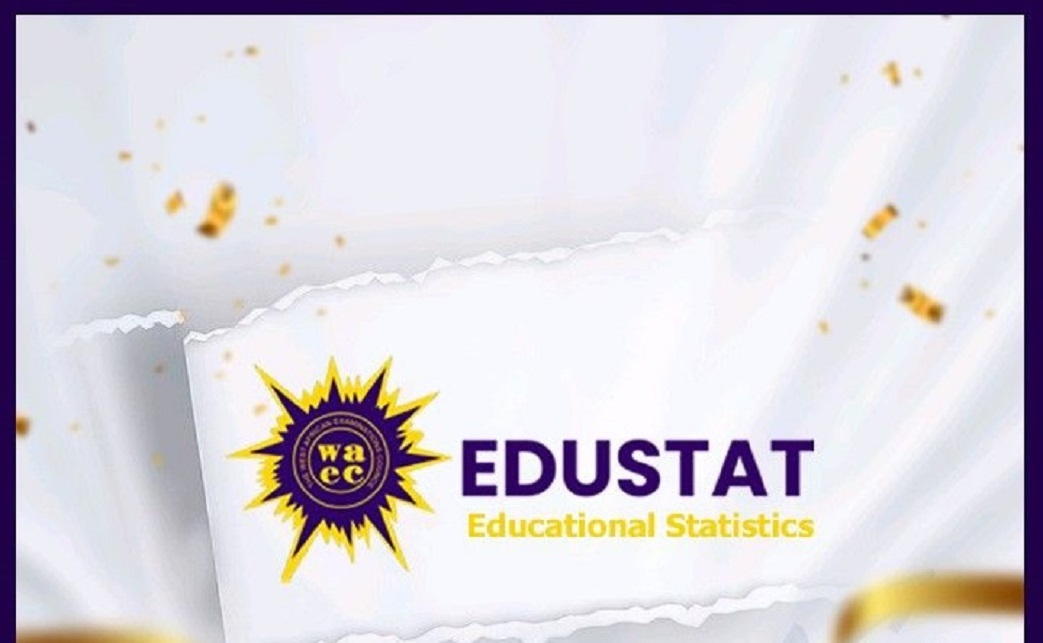Broadcasting
Edustat Offers EdTech Stakeholders What SpaceX Engineers Found during Starship Rocket Launch

By Peter Oluka
Elon Musk’s SpaceX’s Starship rocket — which could one day carry humans to the moon and Mars — made it some four minutes and 24 miles into the sky before it exploded during its inaugural test flight last Thursday.

And yet, even as they watched the world’s largest rocket burst into a fireball, SpaceX engineers still roared with cheers and applause.
The launch was hailed as “a real accomplishment” and “so successful”.
Why?
“With a test like this, success comes from what we learn, and today’s test will help us improve Starship’s reliability as SpaceX seeks to make life multi-planetary,” SpaceX later tweeted.
SpaceX said before the mission that “any data it yielded would be valuable as long as the rocket cleared the launch pad” — which it did.
This is where the lessons come from – SpaceX engineers went for the ‘data’, not necessarily for the Starship Rocket to hit the moon and/or Mars on the first launch. Now they have the data, expect them to be more accurate in the next launch!
The Need for accurate data:
Data helps a company redefine its strategy, increase their revenue and profits by making the company more efficient, providing key insights into operations and customer satisfaction and helping to improve certain processes.
Data can help businesses measure whether certain actions, products or services are profitable and where their greatest expenses might be. Identifying expenses is often the key to increasing profits because businesses can reduce those expenses and keep more of the revenue they earn. Raw data helps the company identify where it can trim expenses, increase efforts and earn more revenue.
Again, that is why stakeholders in the education sector in Nigeria were full of praise for the West African Examinations Council (WAEC) and its technology partners, Sidmach Technologies, following the development of Edustat platform.
I tell you why: Data plays a critical role in problem-solving for company leaders. With an abundance of data, company leaders can identify and address key problems and monitor the effects of proposed solutions.
Solving problems can be much easier and solutions are more effective when the person solving that problem has sufficient information. Understanding the problem in its entirety is typically the first step toward solving that problem.
That is why the SpaceX team didn’t bury their heads in sand when the Spaceship Rocket ‘failed’. Are you in the EdTech space in Nigeria? Edustat presents you with a dataset to rave-up your products/services.
Edustat is a data and Artificial Intelligence-driven analytics platform that offers rich and unique smart statistical insights into education and assessment in West Africa using historical and current data to provide detailed intelligence for stakeholders across the globe in a smart and easily accessible manner. It offers a variety of rich, interactive educational assessment statistics, and insights, in graphs, summaries, tables, trends and interactive dashboards for intelligence, research, and informed decision-making in just a few clicks.
WAEC, in partnership with Sidmach, developed Edustat with ease of use in mind. So, it was built for users to easily sign up, and select the kind of report or intelligence they seek, with an array of filters to filter down the expected result by age, gender, demography, and even special needs amongst many other options of filters.
Values Edustat offers users
Everyone can benefit from Edustat, but let’s highlight a few: Researchers/academics (PhD students, professorship, masters) – We all know it is usually difficult to access accurate data that cover education statistics in gender, disabilities, regions, male/female and other indexes. Researchers will have cause to smile because Edustat contains more than just statistical numbers; you are assured of infographics.
The team infused a summary of any insight or report you generate using Artificial Intelligence (AI) tools.
The opportunities are numerous. Governments at all levels – Federal, State, LGA; MDAs, are welcome to use Edustat.
For instance, the Ogun State Government wants to assess the state’s performance in SSCE over the years. They can compare their State with other States for developmental planning, and interventions (in case the students are not doing well in certain subjects like English, Mathematics, etc).
A State Government that pays WAEC fees its students would cherish having accurate data on their performances.
Funding Agencies – The World Bank, UNESCO, DFID, etc., who are looking for reliable data for interventions for scholarships, erect classrooms/ this will help for informed decisions.
Schools are not left out. Schools would want to know how they perform in WAEC; maybe for the bragging rights of 9As or other achievements. This will help them compare with other schools. They can track how their female students are performing; how the students (generally) are doing per subject; juxtapose their performance to others.
The team really worked hard to integrate AI Predictive Modelling, so schools shall be able to predict how students will perform in future high school assessments – known as WAEC school exams.
Also, Parents who moved to new locations do not know which School to pick for their kids. Worry not; you can assess schools’ performance in WAEC through Edustat.
Private Corporate/Individuals – Any company that does anything on Education like Edcent, uLesson, Edusko, will help them build, and scale up their products, contents, or solutions around subjects.
They can ascertain how candidates perform in each subject in real time.
It is a web-based application for now, but it can be assessed from any device, Laptop, Phone, Tablet etc. It is adaptive to any device and provides everyone with the same experience across all devices.
Edustat offers Pay Per Report. What that means is that you only need to pay for the insight/report you are seeking per time.
But again, with the ease of use in mind, the team built the product with a wallet system which allows users to fund their wallets with sufficient funds which allows them to pay for the statistics/reports/insights they seek by drawing funds from their funded wallet automatically.
So, what are you waiting for, sign up on Edustat (https://waec.edustat.ng/) today!
Peter Oluka is the Editor of TechEconomy
Broadcasting
Luft Pay TV Launches in Lagos, Promises to Revolutionize Entertainment

Luft Pay TV has officially launched in Nigeria’s Pay TV landscape, bringing a fresh perspective to home entertainment.

Officials of Luft Pay TV at the launch
The brand’s dynamic debut in Lagos recenlty, drew media executives, content creators, industry stakeholders, and entertainment enthusiasts.
Yemi Adebowale, head of Corporate Communications and Media at Luft Pay TV, emphasised the brand’s mission to simplify entertainment and provide real value. “Luft Pay TV is more than just another player in the market.
He said, “We’re here to simplify entertainment, eliminate confusion around billing, and provide real value with high-definition content that reflects both global quality and local identity.
Luft Pay TV’s standout feature is its all-in-one subscription model, offering over 35 premium channels for ₦7,500 per month.
The channel lineup includes Sports, Live sports action, Movies: Nollywood and Hollywood films as well as Kids’ Programming, Documentaries, Music and Lifestyle content.
“Decoder and STB Kit Prices: Decoder: ₦25,000 – Complete STB kit with accessories: ₦35,000. As a proudly Nigerian brand, Luft Pay TV is committed to promoting local storytelling through partnerships with indigenous content creators.
“This initiative aims to project African stories globally and provide an inclusive, affordable, and proudly African entertainment experience to Nigerians everywhere.”
Luft Pay TV has commenced nationwide installations across the six geopolitical zones, supported by a growing distribution network and robust customer service infrastructure.
This ensures a seamless user experience for subscribers
With its innovative approach and commitment to Nigerian talent, Luft Pay TV is poised to revolutionise the television experience in Nigeria.
Broadcasting
When Legacy Meets Preparedness – Olusegun Alebiosu as CEO, Firstbank Group

By Aniekan Ezekiel
What happens when legacy meets preparedness? What results from such a combination? Let us not be in a hurry to put forward any answers yet. Instead, let us consider first the opposite situation: When legacy meets unpreparedness.

The world abounds in examples of this distressing situation. A dynasty that has built wealth from generation to generation, with its illustrious heirs providing generational leadership, finds itself in a strange phase where an ill-prepared heir takes over the reins and in that same generation, not the next, wipes out the entire family fortune built over several generations.
We see the same thing with nations. History is replete with examples of great nations built by great leaders, which slid into oblivion when they were hit by arguably the greatest misfortune that ever befalls humanity – bad leadership. It is the reason American author and leadership expert John Maxwell asserts, “Everything rises and falls with leadership.”
As with nations, so with organisations. We see organisations that have thrived for decades and over several generations, get a new leader who is not prepared for such leadership, and the leader pushes the organisation to the brink of collapse.
Contrast this picture with the situation at Nigeria’s most enduring corporate organisation with the most amazing legacies of firsts, First Bank of Nigeria Limited, which witnessed a leadership transition about a year ago. Faced with a number of quality options in and outside the then management team, the decision-makers at the bank and its parent company FBNHoldings, now First HoldCo Plc, had to be clear-minded about who could become the new Chief Executive Officer of FirstBank Group.
Equally important as the need for continuity was the non-negotiable requirement for capacity to manage the ship of the 130-years-plus institution to sustain its enviable legacies and consolidate the gains made in recent years. The search was for someone with a steady head and hands (talk of risk control and mitigation), in addition to an excellent track record of sterling performance and achievements.
Fortunately, fate was on their side. They did not have to look outside. Right there before them was someone who understood all kinds of risks and how to control and mitigate them. He had been with FirstBank since 2016 when he joined as Group Executive / Chief Risk Officer. Then in January 2022 he was elevated to Executive Director / Chief Risk Officer and Executive Compliance Officer.
This man has given nearly three decades of his working life to the banking and financial services industry. He has under his belt a rich tapestry of cross-functional experience in credit risk management, financial planning and control, credit and marketing, and trade. His cross-functional exposure also includes corporate and commercial banking, agriculture financing, oil and gas, transportation, including aviation and shipping, and project financing
Meet Olusegun Alebiosu, the man history had prepared and the one decision-makers chose among the quality options. He was appointed substantive Chief Executive Officer of FirstBank Group in June 2024, having acted in that capacity since April 2024 when the former CEO left.
Determined to build on the bank’s legacies while navigating the ever-changing landscape of the financial services industry, Alebiosu has shown unwavering commitment to lead the bank through a transformative period that places emphasis on strategic consolidation, technological advancement and market expansion.
Alebiosu’s approach to sustaining the legacies of firsts at FirstBank, which has been at the vanguard of accelerating Nigeria’s digital payments as the first bank to issue over 13 million cards to customers, draws from his vast professional experience which began with Oceanic Bank Plc, now Ecobank Plc, in 1991. Between then and joining FirstBank in 2016, he had worked at Coronation Merchant Bank as Chief Risk Officer, at African Development Bank Group as Chief Credit Risk Officer and at United Bank for Africa as Group Head, Credit Policy and Deputy Chief Credit Risk Officer.
Under one year of his appointment as substantive CEO of FirstBank, Alebiosu’s strategic consolidation efforts have demonstrated that he is a worthy successor, not an ill-prepared or unprepared one, proving the decision-makers right. Understanding the critical role of its human capital in sustaining the bank’s legacies, Alebiosu has invested himself and the bank’s resources in promoting staff welfare.
A comprehensive review of the bank’s compensation structure was undertaken to position it within the 75th percentile of the industry, making the bank more retentive of, and attractive to, the best talents. The highest number of staff promotions across various grades in the last five years has happened under Alebiosu’s watch, with 1,654 employees being elevated in one single promotion cycle.
Under his leadership, over 2,186 new hires have been recruited across key functions and subsidiaries, with a large number of them deployed to the sales function to ensure that retail customers are adequately served. Staff are now more engaged based on the high employee engagement score of 86% achieved in the April 2025 WorkBuzz survey, indicating remarkable progress in the bank’s multi-pronged efforts to promote a positive and inclusive workplace culture.
This drive to reinforce a culture of inclusion and recognition has been accentuated by the launch of a group-wide culture transformation initiative with the goal of embedding the core values of integrity, excellence and innovation. It has also been strengthened by a renewed focus on inclusion, collaboration and high performance. Also contributing was the staging of a FirstBank Employee Appreciation Day 2025 featuring, among others, a personalised appreciation video message from the CEO to all employees across the group throughout Africa and beyond. The inclusion message is further boosted by the launch of the inaugural edition of the bank’s pioneering initiative, Mandarin Language School, to bolster the bank’s expansion in the Asian market.
Expansion is a critical plank in FirstBank’s new strategic planning horizon, under Alebiosu’s leadership. Taking off this 2025, the plan seeks to reinforce the bank’s market dominance across all operational regions and it includes deliberate expansion into new markets within and outside Africa.
Beyond geographical and horizontal expansion, Alebiosu’s plan has also targeted a skyward expansion. Or how else does one describe the groundbreaking ceremony in March 2025 for the bank’s new green-certified, 44-storey iconic head office building in Eko Atlantic City, Lagos State?
Alebiosu is also prioritising the acceleration of process automation in recognition of the importance of digital transformation. It is a massive push for technological advancement that includes adopting robotics technology and artificial intelligence at scale, to give the bank an unassailable competitive advantage among its peers in the industry.
The bank has deployed digital tools to enhance seamless account opening and optimised backend systems and customer service delivery. Two additional Digital Experience Centres (DXCs) have been launched – one at Lekki Admiralty Way, Lagos State and the other at its UNN branch, Nsukka, Enugu State. Also, the bank’s agent network has expanded to over 280,000, a 50,000 increase from the 230,000 agents it had in 2023.
As expected, shareholders, among other stakeholders, have been observing the strides the bank has been making under Alebiosu’s leadership, with a keen eye on the numbers. Fortunately, again, the bank’s results for the financial year ended December 2024 speak volumes, with after-tax profit of its parent company rising to the highest point it has reached in the last 12 years, according to the company’s latest financial statement.
In recognition of his achievements within such a short period and his exemplary leadership, Alebiosu was honoured at the World Business Outlook Awards as “Banking CEO of the Year – Nigeria 2025”. He has also been honoured with the “Special African Banking Leadership Award” by African Leadership Magazine. This was in 2024.
The story of Alebiosu’s leadership at FirstBank has clearly been one of preparedness meeting legacy. Working with the board and management team, he has consistently sustained the bank’s legacies and also consolidated its recent gains in ways that will ensure the gains keep compounding. FirstBank, more than ever before, is poised for greater intra- and intercontinental growth and impact in the years ahead.
Broadcasting
Canal+ Buyout Of South Africa’s MultiChoice one Step Closer

South Africa’s competition authority announced Wednesday it had approved the buyout of Africa’s largest pay TV enterprise MultiChoice by France’s Canal+, which wants to expand its footprint on the continent.

The merger, which has been in the works for nearly a year, needs the final go-ahead from the commission’s Competition Tribunal, it said in a statement.
Canal+ holds around 45 percent of MultiChoice’s shares and offered last year to acquire the remainder for 125 rand (6.16 euro) per share.
Canal+ is present in 25 African countries through 16 subsidiaries and has eight million subscribers, according to the French group.
MultiChoice operates in 50 countries across sub-Saharan Africa and has 19.3 million subscribers, it said.
It includes Africa’s premier sports broadcaster, SuperSport, and the DStv satellite television service.
“This is a major step forward in our ambition to create a global media and entertainment company with Africa at its heart,” Canal+ CEO Maxime Saada said in a statement.
The commission said its approval of the merger was subject to public-interest conditions worth about 26 billion rand over three years, including increasing the shareholding of people disadvantaged under South Africa’s white-minority apartheid regime.
It will also maintain the MultiChoice headquarters in South Africa.
A date for the Tribunal’s decision on the merger has not been announced but Canal+ said it was aiming for the deal to be completed by early October.

 E-Financial3 days ago
E-Financial3 days agoCBN Introduces AML to Fight Financial Terrorism, Gives Banks Deadline

 Telecom3 days ago
Telecom3 days agoCelebrating African Creativity: Made by Africa, Loved by the World’ Returns for Its Fifth Year

 E-Financial3 days ago
E-Financial3 days agoPeter Obi Denies Secret Meeting with Tinubu over Fidelity Bank

 General News3 days ago
General News3 days agoOver 250,000 Cyberattacks Disguised as Anime – Report

 Broadcasting3 days ago
Broadcasting3 days agoLuft Pay TV Launches in Lagos, Promises to Revolutionize Entertainment

 E-Financial3 days ago
E-Financial3 days agoPremiumTrust Bank Reassures Customers of Continued Security after Cyberattack Foil

 E-Financial3 days ago
E-Financial3 days agoFidelity Bank’s N10.5tr assets base reinforces stakeholders’ confidence -Insiders bid for more equity stakes

 E-Business3 days ago
E-Business3 days agoINEC Sets Up AI Division to Strengthen Electoral System

























